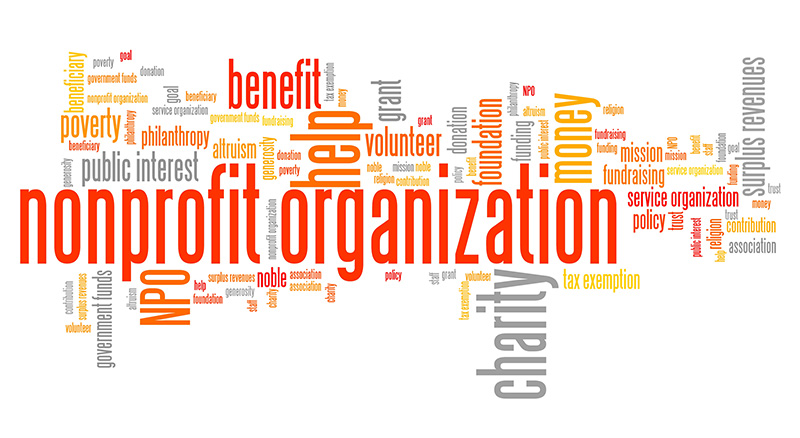Nonprofit Agency: Empowering Organizations to Drive Social Change
Nonprofit Agency: Empowering Organizations to Drive Social Change
Blog Article
Exploring the Diverse Functions and Duties of a Nonprofit Company in Dealing With Social Issues and Supporting Change
Not-for-profit companies work as essential agents of adjustment within culture, taking on a myriad of social problems through diverse methods. Their responsibilities extend beyond plain solution provision; they participate in advocacy, source mobilization, and community outreach, often acting as a bridge between marginalized populaces and crucial services. By fostering collaborations and using culturally relevant techniques, these companies resolve the root causes of social obstacles. Yet, the intricacies of their roles increase essential questions regarding performance and sustainability. What are the implications of these varied functions on lasting community impact?
Recognizing Nonprofit Agency Duties
The efficiency of not-for-profit agencies pivots on a clear understanding of their diverse duties within society. These companies work as important intermediaries in between the general public, personal, and governmental markets, attending to various social problems and advocating for change. Not-for-profit agencies typically work as company, providing essential programs and sources to underserved populations. This function is essential in filling voids that may exist in civil services, making sure that at risk teams have accessibility to needed assistance.
Additionally, nonprofits play an important duty in campaigning for, elevating awareness and influencing plan decisions that impact their areas. By engaging in research study and public education, these companies aid form public discourse and promote educated decision-making - nonprofit agency. They additionally act as platforms for volunteerism, setting in motion area members to add their time and abilities toward collective objectives
Moreover, not-for-profit firms often serve as conveners, combining diverse stakeholders to foster collaboration and collective effect. This collaborative approach improves their ability to attend to facility social problems efficiently. Recognizing these multifaceted roles is vital for maximizing the potential of nonprofit agencies in developing lasting social modification and improving overall community health.
Area Involvement and Outreach
Reliable neighborhood engagement and outreach are basic components of nonprofit firms' approaches to promote connections and develop count on within the neighborhoods they serve. These efforts concentrate on recognizing neighborhood needs, advertising awareness of readily available resources, and motivating involvement in programs made to address social problems. Not-for-profit organizations employ a range of methods to involve with community members, such as workshops, informational sessions, and collaborative occasions.
Outreach initiatives offer to enhance relationships with varied populations, especially marginalized teams who might encounter obstacles to gain access to. By utilizing culturally pertinent interaction strategies and leveraging neighborhood partnerships, nonprofits can improve their exposure and demonstrate their dedication to area empowerment. This approach not only grows a feeling of belonging however additionally raises the chance of continual involvement.
Additionally, efficient area engagement exceeds plain involvement; it involves actively paying attention to neighborhood members' responses and integrating their understandings into program advancement. This collective procedure guarantees that the solutions offered are receptive, relevant, and tailored to the special obstacles dealt with by the community. Eventually, cultivating strong connections with interaction and outreach can result in even more impactful interventions and a greater collective initiative towards advertising positive social change.
Advocacy and Plan Influence
Campaigning for offers as an essential device for nonprofit firms to affect public plan and drive systemic adjustment. By leveraging their expertise and neighborhood insights, these organizations can successfully represent marginalized populations and address pushing social issues. Nonprofits take part in campaigning for with various techniques, including public awareness campaigns, grassroots mobilization, coalition building, and direct lobbying of policymakers.
Through these initiatives, not-for-profit agencies intend to form regulations and policy frameworks that straighten with their mission and the requirements of the communities they serve. They carry out study, collect information, and share engaging narratives to highlight the urgency of particular problems, making certain that decision-makers are notified and inspired to act. This procedure not only enhances the voices of those affected by social injustices however additionally promotes a more comprehensive and equitable policymaking setting.
Additionally, advocacy efforts usually look for to develop long-lasting structural changes, addressing origin instead than simply alleviating signs and symptoms. By focusing on policy impact, nonprofit agencies contribute to a more comprehensive understanding of social challenges and advertise services that can result in sustainable improvements in social wellness. Ultimately, campaigning for is fundamental to the transformative role nonprofits play in creating a just and fair society.
Fundraising and Source Administration
Nonprofit firms rely on robust fundraising and resource management techniques to sustain their campaigning for efforts and maintain their goals. By employing a multi-faceted method, nonprofits can mitigate the risks connected with dependence on a single financing source.
Source monitoring is equally critical, as it involves the strategic allocation of both financial and human resources to take full advantage of impact. Nonprofits have to establish budgets that straighten with their goals while making sure openness and liability to stakeholders. This includes routine tracking of expenses and changing methods as required to maximize resource usage.

Cooperation and Partnerships
While numerous companies pursue their objectives independently, collaboration and collaborations can significantly improve the performance of nonprofit agencies. By functioning with each other with other nonprofits, federal government entities, and exclusive industry organizations, Source nonprofits can merge site web resources, share competence, and intensify their effect on social concerns. Joint efforts frequently cause cutting-edge options that may not be achievable separately, leveraging the strengths of each partner to resolve complex obstacles.

Inevitably, efficient partnership needs clear communication, shared objectives, and mutual regard among partners. By accepting a cooperative strategy, not-for-profit firms can create lasting networks that not just address immediate social problems but additionally add to long-lasting systemic change, fostering an extra equitable culture. With partnership, nonprofits can grow and maximize their capacity for purposeful impact.
Verdict
Not-for-profit agencies work as important entities in promoting and dealing with social issues modification within communities. Via varied functions such as area involvement, advocacy, and source monitoring, these organizations successfully try this activate resources and assistance for underserved populaces. Their collaborative initiatives with different stakeholders enhance the capability to influence public plan and promote architectural modifications. Inevitably, the diverse roles of not-for-profit companies considerably contribute to the search of social justice and the improvement of neighborhood well-being.
Understanding these complex duties is essential for making the most of the capacity of not-for-profit agencies in producing sustainable social modification and boosting overall neighborhood well-being.
Efficient neighborhood interaction and outreach are basic parts of nonprofit companies' strategies to promote connections and develop depend on within the areas they serve. By working with each other with various other nonprofits, federal government entities, and exclusive industry companies, nonprofits can pool sources, share competence, and enhance their influence on social issues.Nonprofit firms offer as crucial entities in dealing with social issues and promoting change within areas - nonprofit agency. Ultimately, the complex functions of not-for-profit companies considerably add to the quest of social justice and the enhancement of neighborhood wellness
Report this page